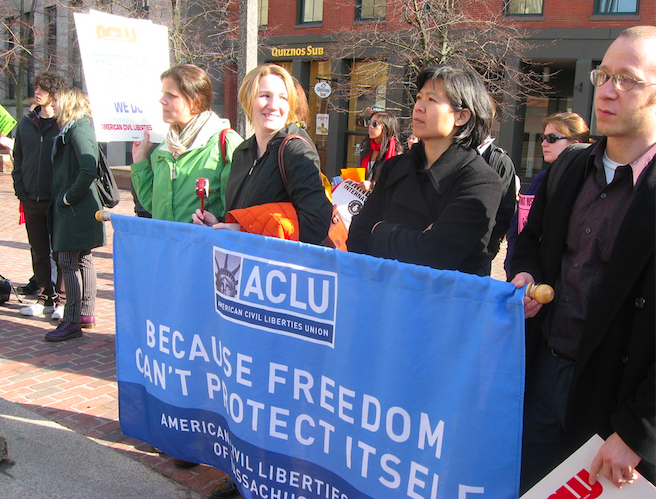Big Changes in Immigration Hearings Benefit New England Immigrants

Laura Rosbrow-Telem – Commonwealth News Service
BOSTON – Starting now, immigration courts in New England can no longer detain undocumented immigrants in bond hearings without the government providing proof that they need to be detained.
The American Civil Liberties Union in Massachusetts and New Hampshire filed a lawsuit in June on behalf of three people jailed after their detention hearings.
But a Boston federal judge has ruled it’s unconstitutional to make an immigrant prove that he or she is not a danger to the community – the burden of proof is on the government accusing that immigrant.
Matt Segal, legal director of the ACLU of Massachusetts, stresses the importance of the ruling.
“Hundreds and over time, potentially thousands of people will have a better chance to be free, to be reunited with their families and communities, while they bat their immigration cases,” he points out.
This is the first class action ruling of its kind about civil immigration bond hearings in the United States. The federal decision also requires that New England immigration judges consider an individual’s ability to pay if a bond amount is set higher than $1,500.
Segal says the three plaintiffs in this case faced detention by default in immigration bond hearings, which he notes is a situation that’s hard to fight.
While the detention by default practice comes from a 1999 court decision, Segal says the ruling has greater significance in today’s political climate.
“The concerns about the unfairness of detention by default are heightened in this administration, because we know from the Trump administration’s public statements that it disfavors seeing immigrants free and favors locking them up,” Segal explains.
One plaintiff is from Massachusetts and two are from New Hampshire. This ruling applies to all immigrants facing deportation hearings, not only in Massachusetts, but in Connecticut, Maine, New Hampshire, Rhode Island and Vermont.
